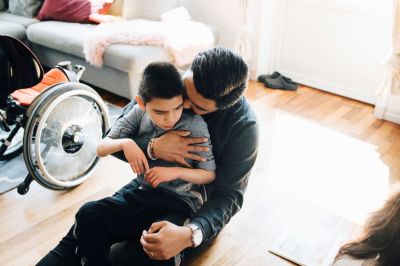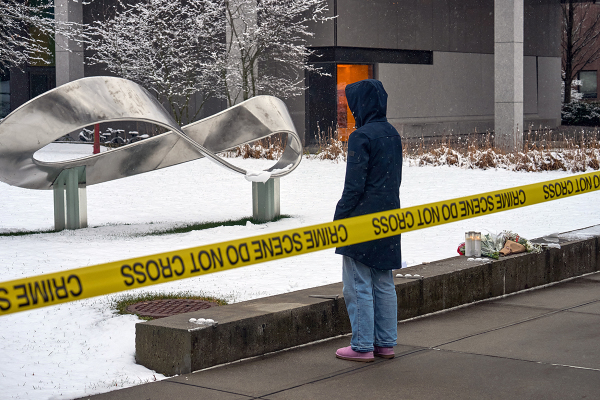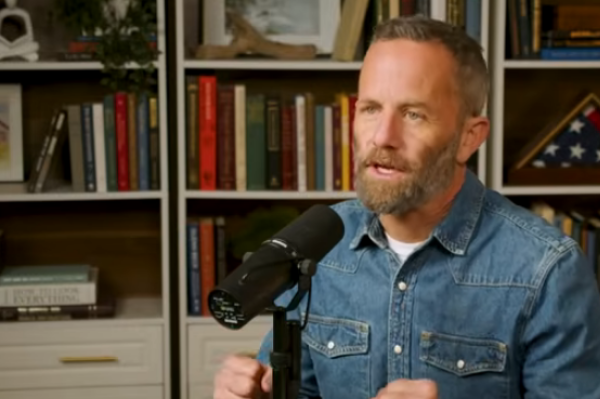What I've learned from working 25 years with children with autism

I’ve been working with children who have autism or other neuro-developmental disorders for 25 years now. I’ve been part of a lot of incredible patients’ stories, but a few have left a significant impact on me. I will never forget seeing the mother of one of my patients start weeping at the sidelines of our soccer field on one Saturday.
Her son struggled to make friends. He was near genius-level IQ — and lonesome. I took her aside after one of our consultations and invited her and her son as friends to join us at a soccer practice. She drove more than 30 minutes to join us.
She did this despite having doubts. She was worried he’d start hitting himself or hitting other people. She was worried he’d be uncomfortable, frustrated, or afraid.
But then she watched the kids on the field helping him, encouraging him. She watched her son enjoy himself in a group setting, perhaps for the first time in a very long time, and she began to cry.
They became regulars. He would climb into the car on Saturday mornings, hours before it was time to leave, and wait anxiously for them to depart.
Of course, the soccer game I’d invited them to was no ordinary event. It was part of the E-Sports program at Bay Area Christian Church, where I serve as an elder. It’s an intentionally inclusive program that serves all sorts of kids, typical and atypical. Soccer is just one of a long list of activities.
It might be tempting to dismiss the full inclusivity of people with autism and other special needs as a fad, or even as mere politics. Yet it’s a project that dates back to time immemorial. What is best in us as people and as civilizations is captured in our efforts to fully include all, without respect to their need or ability.
But our best isn’t just captured in our work to achieve full inclusivity for kids with special needs. It’s also revealed there, sometimes even built from scratch.
To begin with, we have to ask ourselves how we perceive them. It’s not a very pleasant question, a lot of the time. We use euphemisms and mask a lot of our prejudices and stereotypes. We cloak our fear and discomfort in the same ways, even from ourselves. But what, exactly, are we afraid of?
Until we get honest about who we are, it’s hard to be what we need to be for others — and even harder to see others rightly.
A child with special needs is no different inside than the rest of us. They are not a different sort of human person. They are precisely the same marvelous creatures we are — namely, bearers of God’s image.
Relationships with individuals who have special needs often have unique moral and emotional value. People commonly relegate those with special needs into their own corner. They see a lot of their needs as somehow behavioral, and use that to dismiss them as strange, unreachable, or “other.”
But consider the behavior of self-injury, widespread among those with autism. What most people overlook is that a lot of people with disabilities have intestinal pain. They hit themselves in their heads, in their chests. They bite themselves. A lot of the time, it’s because they are suffering pain they don’t understand and cannot relieve.
They aren’t “strange people.” This isn’t just “who they are.” But for us to learn that we need to approach any special needs ministry prepared to listen. We need to learn from them with humility and love. They aren’t problems to be solved, but people to be known and cherished.
This exact inversion of priorities, the shift from centering self to centering others, is essential if we hope to love others or know ourselves at all. It’s one of the most important gestures of special needs ministry precisely because it undergirds Christian love as such and confronts our own shortcomings very directly.
When we marginalize people with special needs — whether it’s due to ignorance, discomfort, fear, lack of familiarity or some other factor — then we are doing it with other groups of people, whether we know or admit it or not. It’s hard for us to silo our moral and emotional shortcomings into just one segment of our life. It generally translates, because it is part of our pattern of relating.
The church is an incubator for right relationships, in general and with people who have special needs. The church has the unique privilege of carrying God’s word and God’s love to all people — especially the most vulnerable among His children.
There’s no substitute for someone having their own relationship with God. That is where the church serves first and most powerfully. But there are countless ways the church can serve individuals with special needs practically: Providing friendship, social support, material support and the like. Ministries designed specifically with their needs in mind are a potent and transformative tool.
People of faith are also in a unique position to explore and exercise compassion and use their talents to help other people. It doesn’t matter if you’re a contractor, a therapist, an attorney, a teacher, or a mechanic.
Nobody can do everything, but everybody can do something. And as Christians, all of us — until the day we die — should be able to see our needs and the needs of others as one of our greatest avenues to greater and better love.
After all, we don’t get inspired by people born with a silver spoon in their mouth. We get inspired by people who persevere through adversity. We get inspired by those who overcome. So become part of someone else’s fight. Learn from them. Help them. Love, know and cherish them. The life most transformed might be your own.
Dr. David Traver runs a leading medical practice in the Bay Area specializing in neuro-developmental disorders. David is an elder in the Bay Area Christian Church and has served as a medical missionary throughout Asia, including the Philippines, Vietnam, and Cambodia.





















